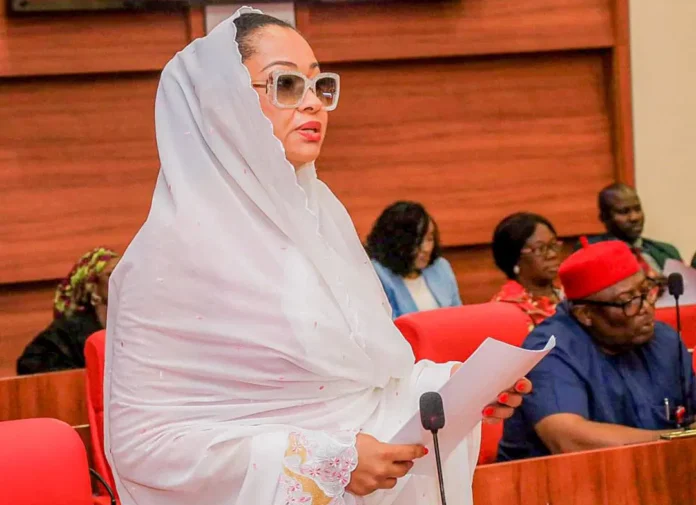A new chapter in Nigeria’s health and social inclusion policy may be unfolding as Senator Natasha Akpoti-Uduaghan (Kogi Central) has sponsored a groundbreaking bill seeking to establish the National Center for Autism and six Zonal Autism Centres across the country — the first of its kind in West Africa.
The proposed law, titled ‘A Bill for an Act to Establish the National Center for Autism and Six Zonal Centers for Autism Diagnosis, Research, Education, and Care,’ aims to tackle decades of neglect, misdiagnosis, and social exclusion suffered by thousands of Nigerians living with Autism Spectrum Disorder (ASD).
Leading the debate on the floor of the Senate, Akpoti-Uduaghan described autism as “a complex neurodevelopmental condition that has been misunderstood and stigmatised in Nigeria for far too long.”
She lamented that children with autism are often labeled “stubborn, mentally ill, or even possessed,” and subjected to abuse and isolation — a tragedy she says stems from lack of awareness and the absence of diagnostic and therapeutic structures in the country.
“Autism is not rare. It is only rarely understood. This bill seeks to correct that by building a national framework for diagnosis, care, education, and inclusion,” she said.
The bill proposes the establishment of a National Centre for Autism headquartered in Abuja, with six Zonal Centers strategically located across Nigeria’s geopolitical regions — Bauchi (North East), Kaduna (North West), Enugu (South East), Port Harcourt (South South), Ibadan (South West), and one in Abuja or another designated location for the North Central zone.
Each centre will provide early diagnosis, therapy, educational support, and community outreach, while the national headquarters will coordinate research, training, and policy formulation.
According to the bill, these centres will also maintain a national autism registry and data bank, train teachers, caregivers, and healthcare workers, conduct research to inform evidence-based national policy, promote public awareness and reduce stigma support inclusion of persons with autism in schools and workplaces.
Akpoti-Uduaghan argued that early intervention is not just a moral duty but an economic investment.
She cited studies showing that every dollar spent on early intervention saves multiple times that amount in future welfare or dependency costs.
“When a child with autism receives the right therapy early, they can grow up to live independently, work, and contribute meaningfully to society. This Bill is about unlocking human potential that our country has long ignored,” she said.
Beyond its humanitarian impact, the legislation is expected to create jobs for therapists, researchers, and educators, while fostering collaboration among the Ministries of Health, Education, Women Affairs, and Science and Technology.
The senator emphasised that the bill aligns with Nigeria’s obligations under several international frameworks, including: the UN Convention on the Rights of Persons with Disabilities (CRPD); the Sustainable Development Goals (SDGs) — particularly Goals 3 (Good Health and Well-being) and 4 (Quality Education); and by institutionalising autism research and care, Nigeria would position itself as a regional leader in the management of developmental and neurodiverse conditions.
Akpoti-Uduaghan appealed to her colleagues to see the bill not just as legislation but as “an act of compassion and justice.”
“This bill gives hope to countless families who have felt abandoned. It’s time Nigeria recognises that every child, regardless of their neurological difference, deserves love, opportunity, and dignity,” she stated.
She urged the Senate to pass the bill for second reading, paving the way for committee scrutiny and stakeholder engagement before final passage.
If passed, the National Centre for Autism (Establishment) Act, 2025 could mark a turning point in Nigeria’s approach to developmental disorders — shifting the narrative from stigma and isolation to understanding, care, and empowerment.
Experts say the move could also inspire other African nations to adopt similar frameworks for autism inclusion and disability rights.
A senator said, “This is not just a health bill — it’s a humanity bill.”

